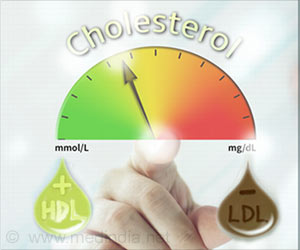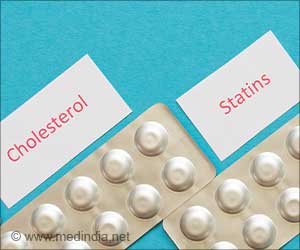Early, intensive therapy with statin medications reduces death and cardiovascular events for patients who have had heart attacks or other acute heart events, according to an analysis.
Early, intensive therapy with statin medications reduces death and cardiovascular events for patients who have had heart attacks or other acute heart events, according to an analysis.
Statins, commonly taken to lower cholesterol levels, have clearly been shown to benefit patients with cardiovascular disease, according to background information in the article. However, it is less clear whether these drugs provide a short-term benefit when given immediately to patients hospitalized for acute coronary syndrome, the group of heart disorders associated with myocardial ischemia (a lack of blood flow to the heart). In addition to reducing cholesterol, statins may stabilize the amount of plaque build-up in arteries, reduce inflammation, prevent blood clotting, reduce blood pressure and improve the functioning of blood vessels, all of which could improve outcomes for patients with acute coronary syndrome.Eddie Hulten, M.D., M.P.H., and colleagues at Walter Reed Army Medical Center, Washington, D.C., and Uniformed Services University of the Health Sciences, Bethesda, Md., analyzed the results of 13 previous clinical trials of early, intensive statin therapy (begun within 14 days of hospitalization for acute coronary syndrome) involving 17,963 adults with acute coronary syndrome. The studies compared intensive (high-dose) statins with low-dose statins, placebo for four months followed by a lower dose of statins, placebo alone or usual care per the treating physicians’ discretion. The participants had an average age of 60 and 76 percent were male.
“This systematic review provides evidence that early, intensive therapy with statins is associated with a reduction of adverse cardiovascular outcomes, particularly cardiovascular death, unstable angina and revascularization when prescribed within 14 days of hospitalization for acute coronary syndrome,” the authors write. “These benefits took more than four months to begin to accrue and were sustained for two years. During these two years, there was slightly less than a 20 percent reduction in the risk of experiencing an adverse coronary event.” These results could not be explained by statins’ cholesterol-lowering effects.
Overall, statins were about as safe and tolerable as the control treatments. Of the 17,963 patients, three developed a dangerous breakdown of muscle fibers, known as rhabdomyolysis; some studies showed a slightly higher risk of hepatitis among individuals taking statins. “Use of intensive statin therapy is often avoided by clinicians owing to fear of increased adverse events due to the higher statin dose or, in patients with only mild elevations in LDL-C [bad cholesterol] level, of driving LDL-C level below a theoretical safe value,” the authors continue. “Our study showed that intensive statin therapy and controls experienced comparable rates of hepatitis, myositis and rhabdomyolysis. Serious adverse events were rare.”
The statin regimen with the most evidence of effectiveness is an 80-milligram dose of atorvastatin, begun within 14 days of hospitalization for acute coronary syndrome, they conclude.
Source-Newswise
SRM





